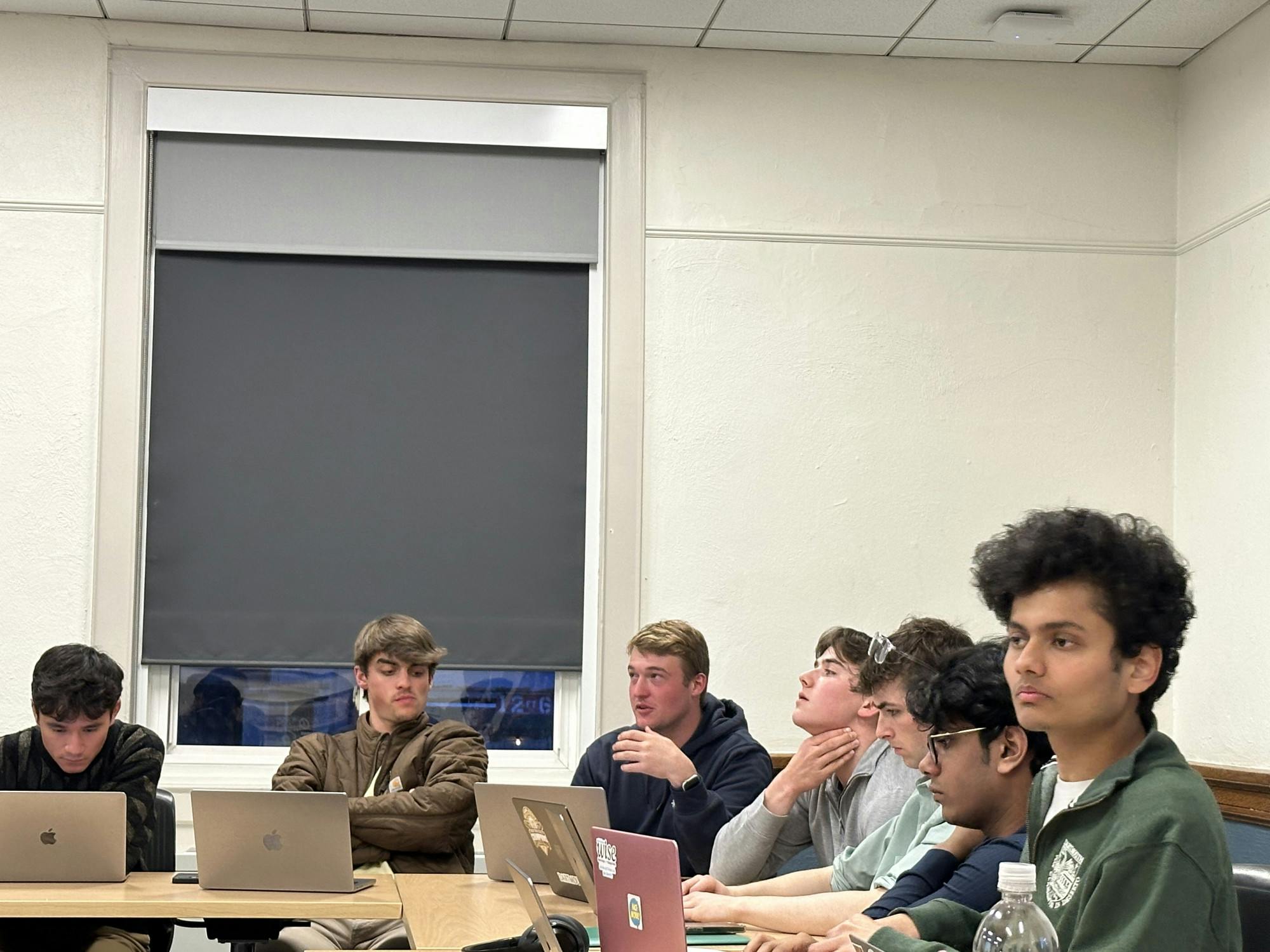On April 21, the Dartmouth Student Government Senate met for its fourth weekly meeting of the spring term. Led by student body president Jessica Chiriboga ’24, the Senate discussed potential solutions to the closure of weight-lifting machinery in Alumni Gymnasium due to discovery of asbestos on the floor below. It also considered a proposal for the College to adopt “institutional neutrality” — which would limit the College administration’s ability to take positions on social and political issues.
On March 28, the Office of Environmental Health and Safety “detected loose asbestos in debris that fell from the ceiling” of Alumni Gymnasium’s Room 118, according to past reporting by The Dartmouth. As a result, the weightlifting equipment located above the room has been closed off for the removal process. Chiriboga said DSG emailed fitness center manager Peter Lambert on April 22 with a request to move the weightlifting equipment to the basement of the gym in order for students to be able to use the machinery.
As a result of the inability to use weightlifting equipment in Alumni Gym, DSG may also use their funding to raffle day-use vouchers for the River Valley Club workout center. DSG will also email Dartmouth Transportation Services about adding a bus stop outside of the River Valley Club, which is located in Lebanon.
Transitioning from the topic of weightlifting machine placement, DSG then discussed institutional neutrality in light of what Chiriboga referred to as “events on campuses surrounding freedom of speech and freedom of expression.”
“It’s important for the [College] to clarify its position as an institution that is dedicated to helping students explore different issues,” Chiriboga said. “They [can] best do that by ensuring robust freedom of expression, protecting academic freedom and not enforcing an institutional orthodoxy on their students, faculty or staff.”
Chiriboga said the College could adopt a policy of institutional neutrality based on the University of Chicago’s 1967 Kalven Report — which has been adopted by institutions including the University of North Carolina, Reed College and Columbia University. The report advocates for prioritizing free speech over any political policy. Chiriboga proposed that the College create a committee of faculty, staff and students to further discuss the matter.
Town affairs liaison Nicolás Macri ’24 said he believed implementing a policy of institutional neutrality at the College would be “a solution in search of a problem.” He cited the fact that the College is not “rampantly” posting on X, formerly known as Twitter, or “indoctrinating people” in its posts. Macri said he believes implementing institutional neutrality could instead prevent the College from issuing statements at times when its voice “could be necessary.”
“Higher education is under attack in many ways by, for example, right-wing political movements, and I wouldn’t want to exclude [the College] from the conversation,” Macri said.
School House senator Roger Friedlander ’27 expressed concern that the College has become too overtly political, citing the 2024 College Free Speech Rankings published by FIRE and College Pulse, which ranked Dartmouth with “poor” free speech.
“This is really troubling — we’re supposed to be a leading institution and there are students on campus that feel like they can’t adequately express themselves,” Friedlander said.
Friedlander added that he believes the role of a university is to teach the students “how to think, not what to think” and that it is “in [the College’s] best interests to get as close to First Amendment free-speech rights as possible, except for hate speech and the like.”
Allen House senator Matthew Kim ’25 said that the job of deciding which issues are considered partisan or political might be complicated when adopting institutional neutrality policy, citing the growing politicization of environmentalism.
The Senate did not arrive at a conclusion about institutional neutrality proposals, but plans to continue to discuss the issue.
DSG Senate meetings occur weekly on Sundays at 7 p.m. in Collis 101 and are open to all students.




